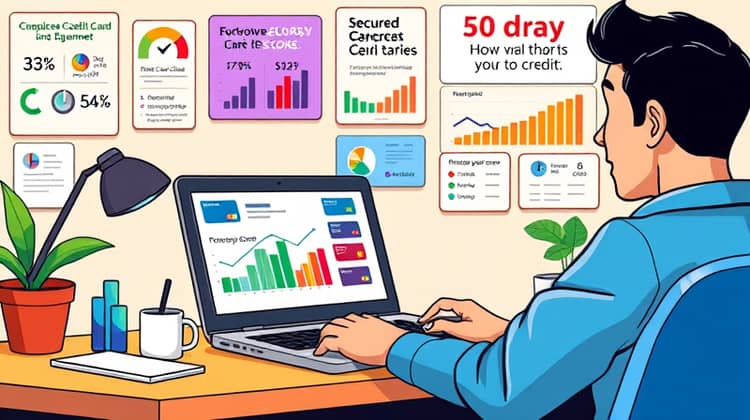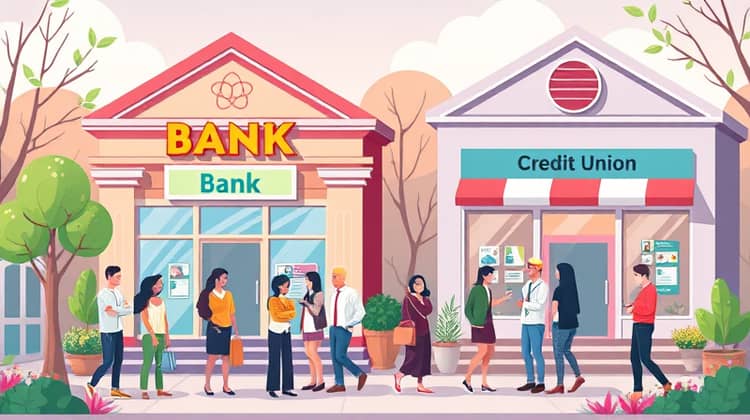Credit Card Approval: 5 Proven Tips for Those with Bad Credit

Navigating the world of credit can be particularly challenging for those with bad credit. Many individuals find themselves overwhelmed by the seemingly insurmountable obstacles in securing a credit card, especially when applying for traditional cards. However, rest assured, with the right approach and strategies, it is entirely possible to increase your chances of approval and rebuild your creditworthiness.
This article will provide you with five proven tips for securing credit card approval despite having a poor credit history. With a focus on understanding your credit situation and exploring alternative options, these tips are designed to empower you on your journey towards financial rehabilitation.
Understanding the Challenge

For individuals with bad credit, applying for a credit card can often feel like an uphill battle. The fear of rejection looms large, especially considering many lenders are hesitant to approve applicants with a blemished credit history. As a result, many individuals feel trapped, as they believe that they cannot rebuild their credit without first obtaining a credit card.
However, it's crucial to understand that the credit landscape is evolving, and there are options available that cater specifically to those with poor credit scores. By identifying these opportunities and preparing strategically, you can significantly enhance your chances of obtaining a credit card that aligns with your needs.
- Understanding the factors that influence credit scores
- Exploring the types of credit cards available for those with bad credit
- Recognizing the importance of responsible credit usage
Armed with this understanding, let’s delve into actionable tips that can help you secure credit card approval even with a less-than-stellar credit rating.
Tip 1: Know Your Credit Score

Before applying for a credit card, it's vital to know where you stand regarding your credit score. This score is a numerical representation of your creditworthiness, which lenders use to determine the likelihood of you repaying borrowed money. Monitoring your credit score regularly can help you understand your financial standing and make informed decisions.
You can obtain your credit score for free through various online services or financial institutions. Familiarizing yourself with the nuances of your score can help you identify any areas that need improvement before you apply for credit.
- Check your credit report for errors
- Know the range of credit scores different lenders consider acceptable
- Identify factors negatively impacting your credit score
Having this information can prove invaluable, providing you with clarity when seeking potential credit card options.
Tip 2: Research Secured Credit Cards

Secured credit cards are a solid option for individuals with poor credit, as they require a cash deposit that acts as your credit limit. This deposit significantly lowers the risk for lenders, making it more feasible for you to get approved. Secured credit cards often report to credit bureaus, allowing you to rebuild your credit when used responsibly.
When exploring options, be sure to compare different secured credit cards. Look for cards with low fees, favorable terms, and those that report to all three major credit bureaus. This research will enhance your chances of making a wise choice that helps you rebuild your credit effectively.
- Consider annual fees and interest rates
- Check if the card issuer reports to all three credit bureaus
- Look for cards that allow you to graduate to unsecured credit
Utilizing a secured card responsibly can pave the way for rebuilding your credit score, making it an essential step in your approval journey.
Tip 3: Be Honest on Your Application

When it comes to applying for a credit card, honesty is the best policy. Being truthful about your financial situation can save you from potential headaches later. If you have poor credit history, don't try to hide it; instead, present your situation honestly to the lender.
Lenders appreciate transparency, and being upfront can often lead to alternative solutions that may still suit your needs, even if you don’t get approved for a traditional credit card.
- Provide accurate personal information
- Disclose current income levels and employment status
- Explain any recent financial hardships
Being upfront can demonstrate to lenders that you have nothing to hide, potentially increasing their confidence in your application.
Tip 4: Limit Hard Inquiries

Hard inquiries occur when a lender checks your credit report as part of their decision-making process. While it's normal for lenders to perform these checks, multiple hard inquiries within a short span can negatively impact your credit score further. Therefore, it is wise to be strategic about when and where you apply for credit.
To improve your chances of approval, limit the number of applications you make. Spacing out your applications allows your credit score to recover from previous inquiries and positions you as a more responsible borrower.
- Only apply for cards that match your credit profile
- Utilize pre-qualification tools to gauge your chances before applying
- Wait at least six months between credit applications
By being selective with your applications, you can protect your score and improve your chances of getting approved.
Tip 5: Consider Credit Unions or Local Banks

Credit unions and local banks often have more flexible lending criteria compared to larger national banks. This flexibility means they may be more willing to approve applicants with bad credit, especially if you are a member or have a long-standing relationship with the institution. Take the time to research credit unions in your area and evaluate what they can offer.
Many credit unions offer products designed for those looking to rebuild their credit, including secured credit cards with lower fees and rates. This approach may be more beneficial for your financial recovery than applying standard credit options that may further complicate your situation. Furthermore, local banks often have community-focused lending practices, which can work in your favor.
Considering these options could open new doors, as they may offer more personalized service and better approval rates compared to larger institutions.
Building Your Credit with a New Card

After successfully obtaining a credit card, it is crucial to use it wisely to avoid falling back into debt. Start by keeping your balances low and paying off your balance in full each month if possible. This responsible usage will reflect positively on your credit report and help you gradually rebuild your credit score.
Another essential practice is to set up reminders or automatic payments to ensure you never miss a due date, as missed payments can lead to significant damage to your credit score.
- Always pay on time
- Keep your utilization below 30%
- Monitor your credit report regularly
By adhering to these principles, you can maximize the benefits of your new credit card while minimizing the risk of further credit trouble.
Final Thoughts

Rebuilding your credit is a gradual process that requires patience and diligence. By following the tips outlined in this article, you can create a roadmap to not only obtain credit card approval but also set the foundation for a healthier financial future.
Remember that everyone’s credit journey is unique, and setbacks are a part of the process. Stay committed to practicing responsible credit habits so you can gradually improve your financial standing, regardless of the initial hurdles you face.






